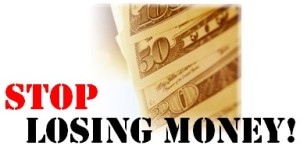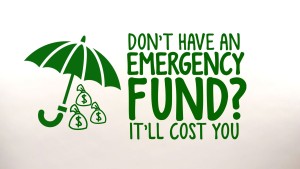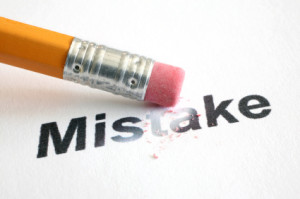 There are three primary types of debt available today: 1) Revolving, 2) Installment, and 3) Mortgage. Revolving debt is the most costly type of debt and is typically made up of credit cards, which allow you to use someone else’s money, pay down the balance, and use that money again. Installment debt is typically a short-term closed-end loan, such as an auto loan, where you would borrow a specific amount of money, for a specified period of time, and pay it back in equal installments. Mortgage debt is long-term installment debt used to finance real estate.
There are three primary types of debt available today: 1) Revolving, 2) Installment, and 3) Mortgage. Revolving debt is the most costly type of debt and is typically made up of credit cards, which allow you to use someone else’s money, pay down the balance, and use that money again. Installment debt is typically a short-term closed-end loan, such as an auto loan, where you would borrow a specific amount of money, for a specified period of time, and pay it back in equal installments. Mortgage debt is long-term installment debt used to finance real estate.
One of the most common ways people lose money is through the use of credit, which becomes debt if not paid in full at the end of each billing period. Therefore, getting rid of non-preferred debt should be a priority for anybody who wants to improve their financial health. There are many methods for paying off debt and some are more efficient than others. One thing is certain though. Most people go about paying off their debt in a way that undermines their objective.
The 6 biggest mistakes people make when paying off debt are as follows:
 Mistake #1
Mistake #1
The first mistake people make is not having an emergency reserve before attempting to pay off debt. The absence of an emergency reserve is at least partially responsible for people having credit card debt in the first place. Without an emergency reserve many people, whether they realize it or not, are using their credit cards as their emergency reserve.
Mistake #2
The second mistake people make is trying to pay off more than one debt at a time. It is common for people to send an extra $10, $20, $50, or more to several debts because they believe they are somehow making greater progress. However, that method will only serve to dilute your results. Instead they should pick one debt and send any extra money to that one debt.
Mistake #3
The third mistake people make is prepaying tax-deductible debt (mortgage) before paying off non-tax-deductible debt (credit). For many Americans, mortgage interest is the most substantial income tax deduction they have. Prepaying low interest rate mortgage debt before prepaying higher interest rate non-tax-deductible debt may save mortgage interest, but that savings is offset by the higher interest paid on credit cards and auto loans, while at the same time increasing one’s tax burden.
 Mistake #4
Mistake #4
The fourth mistake people make is paying off debt that doesn’t improve their monthly cash flow. When people send extra money toward installment debt to accelerate its payoff, the loan term is reduced, but the monthly payment remains the same throughout the loan term. When people send extra money toward credit card debt the minimum monthly payment decreases as the outstanding balance decreases. The result is an increase in monthly cash flow, even if only slightly.
Mistake #5
The fifth mistake people make is making new purchases on a credit card they are trying to pay off. Unless you send more money to the credit card than any given months’ finance charge plus any new purchases made in that month, the credit card balance will increase. This may seem obvious, but many people have no idea how much money they’ve charged to a credit card in any given month.
Let me illustrate: take a credit card with a balance of $5,000, a minimum payment of $134.00 and a finance charge (interest) of $75.00. If you rounded your payment up to $200.00 you would expect the extra $66.00 ($200 – $134), plus the principal payment of $59 ($134 – $75), to reduce the balance to $4,875 ($5,000 – $66 – $59). However, your charges for the month totaled $200, which resulted in a balance of $5,075 ($4,875 + $200).
Mistake #6
The sixth mistake people make is focusing on the credit card with the highest interest rate. It is easy to understand the desire to eliminate higher interest rate debt first. However, focusing on the higher interest rate may actually extend the time it takes to get out of debt. There are far more efficient methods for paying off debt.
 Not everybody makes all six of these mistakes, but many do, and making any of them can impede and/or counteract the progress you are working so hard to achieve.
Not everybody makes all six of these mistakes, but many do, and making any of them can impede and/or counteract the progress you are working so hard to achieve.
If you’re interested in learning more about the power of an emergency reserve and a simple strategy for establishing one download our FREE report entitled “The Emergency Reserve: A Critical Step to Gaining Control of Your Personal Finances” We also encourage you to contact us to schedule a time to talk about your specific circumstances.
Leave a Comment